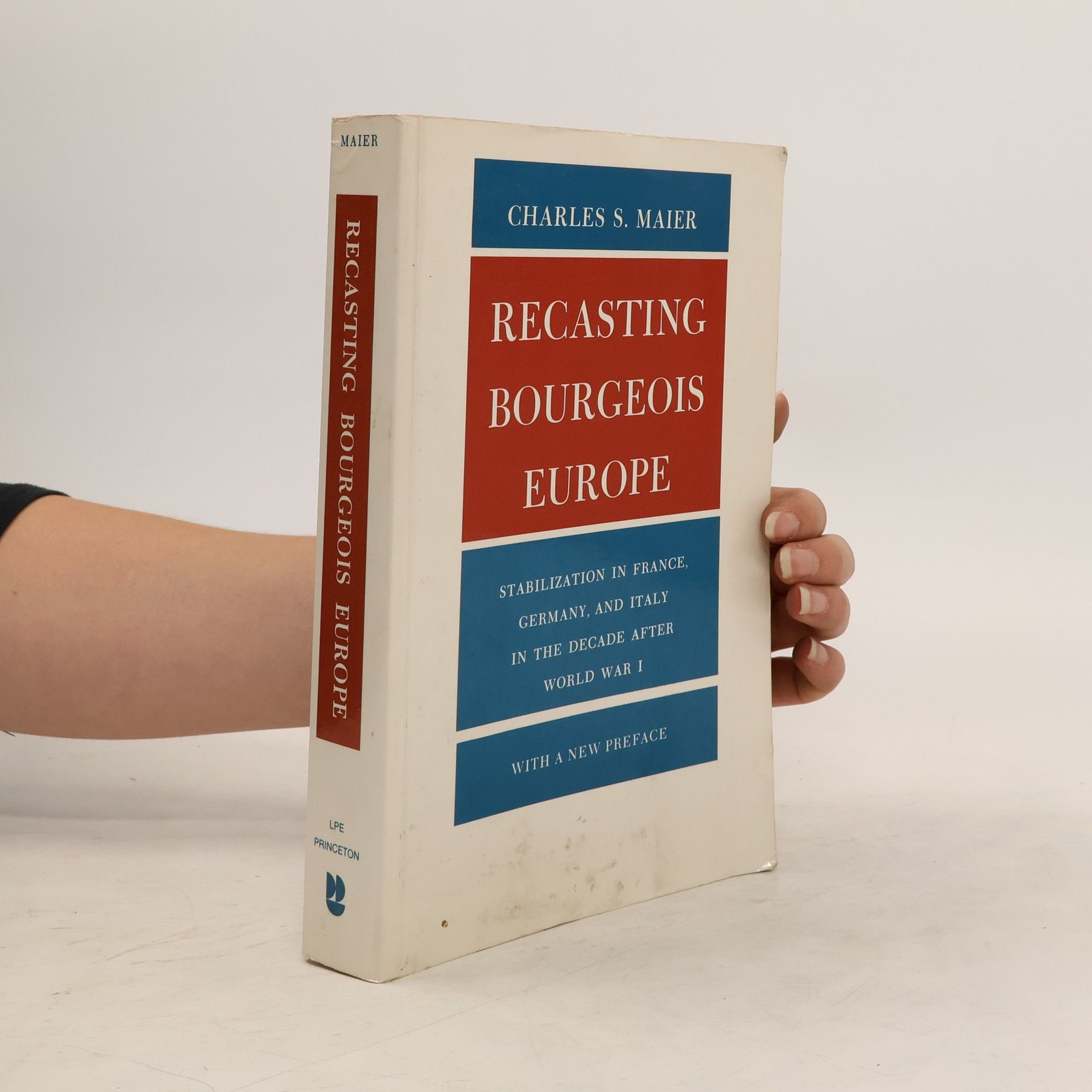Exploring the dynamics of political and economic stability in twentieth-century Western industrial societies, this collection of essays examines the ideological influences of American power on Europe post-World Wars, the economic ideologies of Nazi and fascist regimes, and their comparative achievements against liberal democracies. It also investigates the interplay between productivity, class division, and inflation, alongside the representation of interests within capitalist political economies, offering a comprehensive analysis of historical political economy.
Charles S. Maier Knihy






The Project-State and Its Rivals
A New History of the Twentieth and Twenty-First Centuries
Focusing on the institutions that influenced politics and societies throughout the long twentieth century, the narrative explores project-states with democratic or authoritarian ideologies, the role of capital, and the impact of advocates for apolitical values like health and human rights. This examination reveals the complexities of our current era and the historical forces that have shaped contemporary challenges.
In The Unmasterable Past, Charles Maier writes that controversy regarding German national history and identity substituted for constitutional debate at at the time of German reunification
Recasting Bourgeois Europe
Stabilization in France, Germany and Italy in the Decade After World War I
The book examines a critical topic in the disciplining of forces for change: how political and economic elites retained their power following world war, economic dislocation, and domestic turmoil—stresses that seem to make social leveling inevitable. Charles S. Maier uses a comparative approach to study this phenomenon as it occurred in France, Germany, and Italy in the decade after World War I.The author concentrates on those disputes through which the basic distribution of power wee contested or exposed: conflicts over nationalization, taxes. and inflation; relations between capital and labor; reparation quarrels, tariff negotiations; and parliamentary elections. He finds that although existing elites were compelled to share their power with new leaders, much of the traditional European class structure was preserved and the capitalist system remained intact through a major evolution away from classical parliamentarianism toward patterns of interest group representation.The conclusion of the book suggests that this system of stability, despite its interruption by the Depression, Nazism, and World War II, anticipated political solutions achieved after 1945.
Changing Boundaries of the Political
Essays on the Evolving Balance Between the State and Society, Public and Private in Europe
- 428 stránek
- 15 hodin čtení
Focusing on the political landscape of Europe since the 1960s, this investigation offers fresh insights into the dynamics of advanced industrial economies. It explores the interplay between political developments and economic structures, shedding light on how these factors have shaped contemporary European society. Through a detailed analysis, the book reveals the complexities and transformations that have occurred over decades, providing a nuanced understanding of the region's political evolution.
Charles S. Maier hat erfolgreich die Herausforderung angenommen, die Ereignisse und Hintergründe, die zum Zusammenbruch des Kommunismus und der DDR führten, in einen umfassenden historischen Kontext einzuordnen: Ein äußerst profundes, auf breitem Quellen- und Archivstudium basierendes und überdies stilistisch brillantes Werk, das seinesgleichen sucht.
